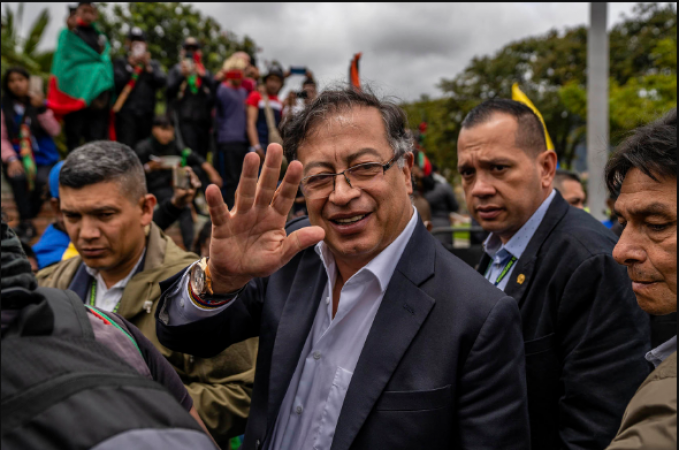
Bogotá - After several months of suspension, the Colombian government and the National Liberation Army (ELN) rebel group have resumed peace talks in Mexico City. These talks, initiated with the ambitious goal of ending Colombia's 50-year-long civil war, have been fraught with difficulties, with significant disagreements remaining, particularly concerning the demobilization of rebel forces.
Resuming the Journey for Peace
The peace talks, recommenced on September 8, 2023, are under the mediation of Norway, Cuba, Chile, and Venezuela. The government delegation is headed by former President Juan Manuel Santos, while the ELN delegation is led by Pablo Beltrán.
Also Read: Sri Lanka Declares State of Emergency Amidst Severe Economic Crisis
Key Agenda Items
Several crucial issues are expected to be at the forefront of the renewed peace talks:
Challenges and Hurdles
The Colombian peace process is fraught with complexity and challenges, reflecting a half-century of conflict marked by mistrust, violence, and deep-rooted grievances. Addressing these challenges demands significant concessions from both sides and the unwavering political will of the Colombian government and the ELN.
The ELN Demobilization Dilemma: The ELN represents a multifaceted organization with a significant presence in remote and marginalized regions. Achieving the demobilization of its members will necessitate carefully crafted incentives and comprehensive guarantees to ensure their peaceful reintegration into society.
Reintegration and Rehabilitation: The successful reintegration of former combatants into society is a multifaceted task requiring substantial resources. The government must provide education, job training, psychological support, and access to basic services to facilitate their transition.
Tackling Drug Trafficking: Drug trafficking remains a stubborn issue that both funds and fuels violence. Effectively addressing this challenge will require coordinated efforts, robust law enforcement, and strategies to provide alternative livelihoods for those involved in the drug trade.
Reforming the Armed Forces: Allegations of human rights abuses within the Colombian armed forces must be addressed to restore trust and ensure compliance with international norms.
International Support and Mediation: The support and mediation of Norway, Cuba, Chile, and Venezuela are invaluable in maintaining the peace process's momentum and impartiality.
Also Read: Iran Nuclear Talks Resume in Vienna: Hopes and Challenges
A Long and Winding Road to Peace
The Colombian peace process is a profound and protracted journey marked by complexities and uncertainties. Nevertheless, it remains the best avenue to end the country's enduring civil conflict. The resumption of talks signifies a renewed commitment to pursuing peace, despite the daunting challenges ahead.
The resumption of peace talks between the Colombian government and the ELN rebel group brings renewed hope to a nation that has suffered from decades of conflict. The road to peace is fraught with obstacles, but it is a journey worth taking.
Also Read: EU and US Forge Alliance to Bolster Energy Security Amid Ukraine Conflict
Achieving a comprehensive and lasting peace in Colombia will demand unwavering determination, international support, and a shared commitment to addressing the root causes of the conflict. As negotiations continue, the world watches, hopeful that Colombia can find a path to reconciliation, stability, and a brighter future.